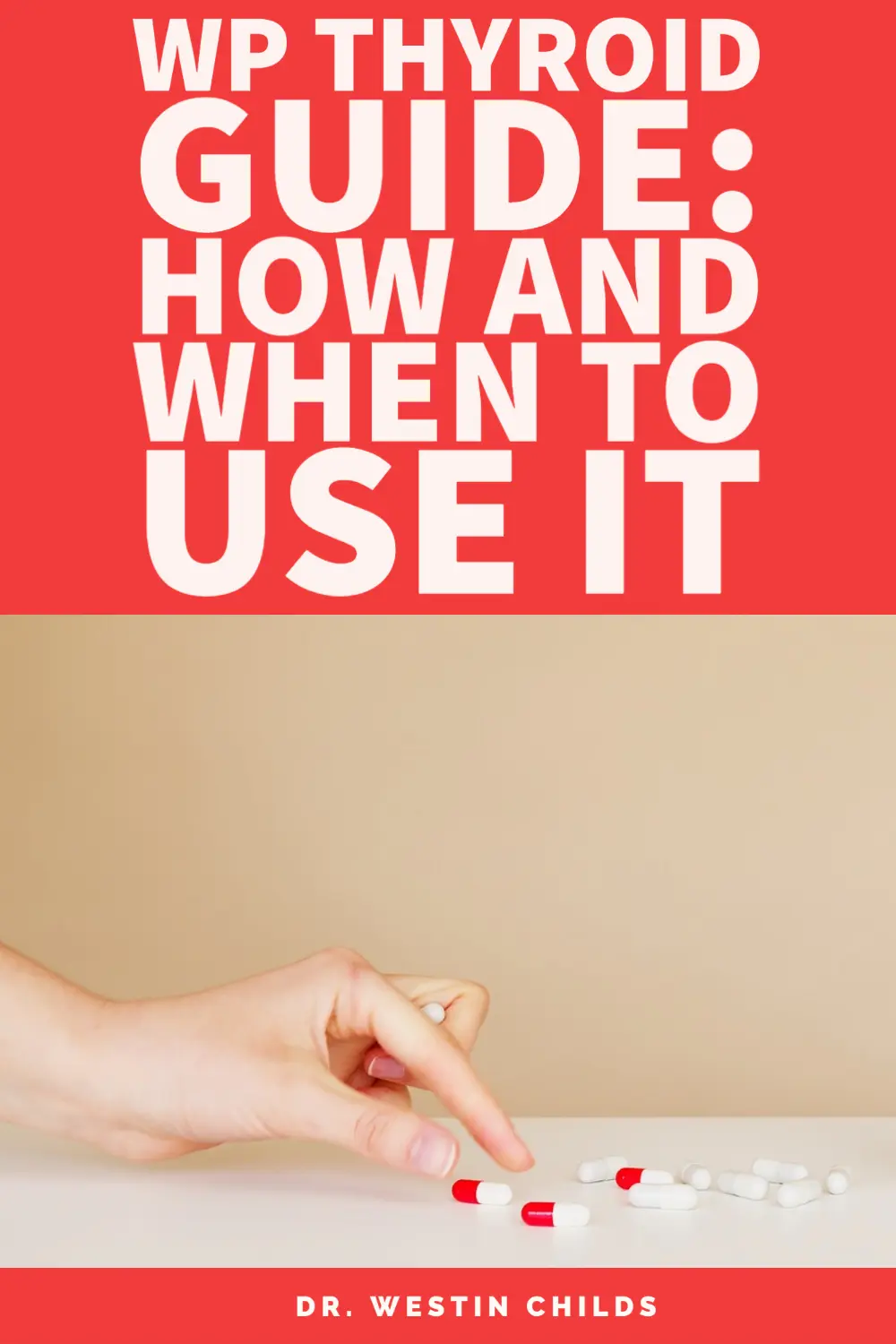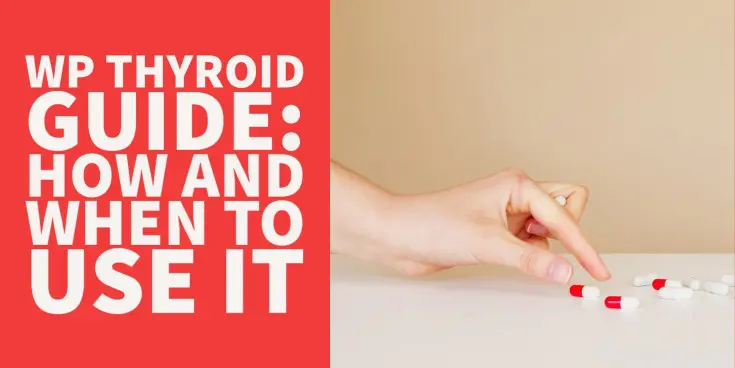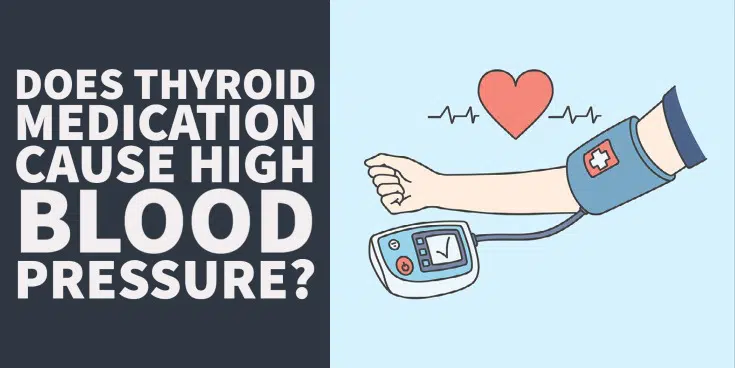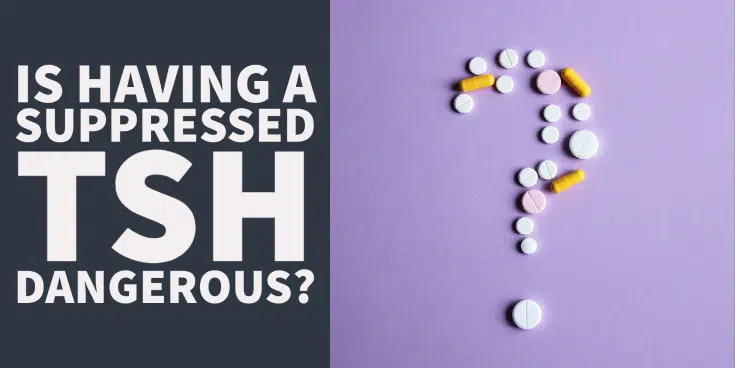Want to see how one of my thyroid patients was able to lose 55+ points over 6 months with the use of WP Thyroid? You’re in the right place.
But before we jump into that, you should know that WP Thyroid is currently NOT available. If that ever changes, I will send out an email to my mailing list of over 200,000 thyroid patients (which you can sign up for here if you’d like).
In the meantime, I am recommending the use of Armour Thyroid, NP Thyroid, and/or Adthyza in its place.
All that said, you’ll still find plenty of useful information in this patient case study relating to all things weight loss for thyroid patients.
Let’s jump in:
What is WP Thyroid?
Let’s jump into some WP thyroid basics for a minute before we get technical:
WP thyroid is a form of thyroid hormone that falls into the class of medications known as Natural Desiccated Thyroid or NDT for short.
Other medications in this class include Armour Thyroid and Nature Throid, but there are certainly others as well.
These medications (as a whole) are unique among thyroid medications in that they are created from collecting and crushing (or desiccating) the thyroid gland of animals (pigs in this case).
The reason these medications work is that the thyroid gland of pigs contains the same bio-identical hormones that we as humans use.
So basically we found a way to extract thyroid hormones from animals and we provide those to people who suffer from hypothyroidism.
This process should be differentiated from the synthetic creation of thyroid hormones such as Synthroid and levothyroxine which are manufactured from other sources.
The net result of desiccating thyroid glandular tissue from animals is that you get a more complete array of thyroid hormones including the biologically active thyroid hormones T3 and T4, along with the less biologically active thyroid hormones T1 and T2.
This should also be compared to Levothyroxine/Synthroid which only contains the T4 thyroid hormone.
One of the reasons that NDT (and therefore WP thyroid) may be superior to other forms of thyroid hormone is because it contains all of the ingredients we previously mentioned.
So we know that WP thyroid is different from standard synthetic thyroid hormones, but how does it differ from other NDT medications, and does this make a difference?
WP Thyroid vs Nature-Throid vs Armour Thyroid
Are all thyroid medications created equal?
While all of the various combinations of natural desiccated thyroid contain the same amount of thyroid hormone, they differ in the fillers and binders that they contain.
One of the questions I get all the time is this:
Which is the best thyroid medication?
And there really isn’t a simple or easy answer.
Instead of focusing on which thyroid medication is “best” you should instead be asking yourself: which thyroid medication is “best” for MY body?
So when would someone consider using WP thyroid over Nature-Throid or Armour thyroid?
Since they contain the same amount of thyroid hormone, the answer really comes down to what is inside each of them.
You can find a list of ingredients below:
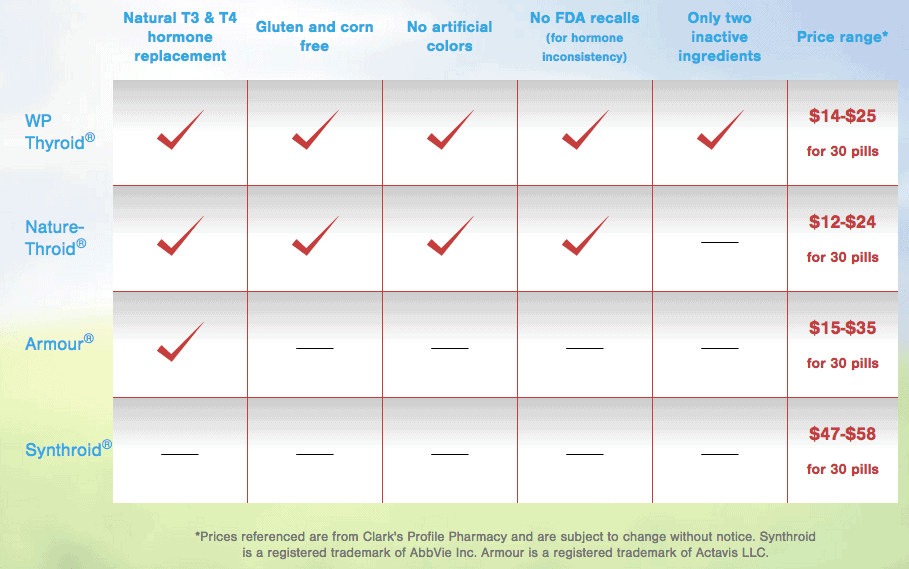
WP thyroid has the fewest amount of inactive ingredients which theoretically means people should react better with this medication versus other forms.
It isn’t quite that simple in reality, but you can use some of this information to help figure out which medication is best for you.
In general, patients who tend to do better on WP thyroid are those who have one or more of the following:
- Intestinal issues like SIBO/SIFO, IBS, chronic constipation or acid reflux
- Low levels of SHBG despite increasing dosage of thyroid hormone
- Poor reaction to other forms of Natural desiccated thyroid hormone
- Hair loss with Nature-Throid or Armour thyroid
In order to get the most benefit from thyroid hormone, you really need to make sure you are both absorbing the medication and that the medication is getting into the target tissues.
Since the GI tract is involved with the digestion and absorption of thyroid hormone it’s important to make sure that is functioning optimally.
The more binders/fillers/cellulose etc. in the inactive ingredients of the thyroid hormone the more difficult it is to absorb.
The actual conversion of thyroid hormone takes place in the body, so various factors like inflammation, hormone imbalances, etc. seem to alter tissue concentrations more than absorption.
In patients with chronic GI issues or difficulty with other forms of NDT, it is worth a trial of WP thyroid to see if issues resolve.
If you fall into one of these categories above (especially if you’ve just been switched from T4 or levothyroxine) then it’s definitely worth asking your physician about WP thyroid before switching back.
The absorption issue is why I believe many patients do so well on Tirosint vs Levothyroxine and Synthroid.
Fewer ingredients = better absorption (generally).
But to answer the question if one of these forms of thyroid hormone is superior to the other – the answer is probably not…
It just depends on you.
For more information on Armour thyroid and weight loss please see this post.
Does WP Thyroid cause Weight Loss?
The answer to this question is actually more complex than you might think.
I’m showing you a case study of Sharilyn who was able to lose weight while being on WP thyroid, but I wouldn’t give WP thyroid all the credit for her weight loss in this case.
The cause of weight gain in hypothyroid patients is usually due to multiple hormone imbalances of which thyroid dysfunction is only 1 (and may not even be the primary driver of weight gain).
Many patients get “thyroid tunnel vision” and wrongly believe that every symptom they are experiencing (including weight gain) is the result of thyroid dysfunction.
While the thyroid may be the cause of your fatigue, hair loss, cold extremities, etc. it is most likely not the main reason you can’t lose weight.
I will show you exactly what helped Sharilyn lose weight down below, so if you can’t wait for that you can jump down now…
Now back to WP Thyroid:
I just got done telling you that your thyroid medication is probably not the main driver of weight gain in your body, but that doesn’t mean it isn’t playing a role.
Some patients suffer from metabolic conditions that result in low circulating levels of T3 in the body.
We know from studies (1) that serum T3 levels (both free and total T3) can be used to predict the amount of weight that a patient will lose during a weight loss plan.
At first glance, it doesn’t seem that the T3 levels themselves result in more weight loss, but rather the changes to serum levels probably allow the weight loss to “stick” over time.
And this is really important so let me break this down:
#1. The type of thyroid medication doesn’t play a big role in weight loss directly but it allows you to keep off the weight if your medication allows your T3 to stay in an “optimal” range.
#2. WP thyroid may help people keep off the weight they have lost if it helps increase serum and free T3 levels.
#3. Switching to WP thyroid will probably help with weight loss only if you are not tolerating the medication that you are currently taking or if that medication is not being absorbed properly.
#4. Weight loss usually occurs in thyroid patients who switch medications AND undergo weight loss therapies such as exercise, change in diet, stress reduction, and who take certain supplements.
My experience suggests (and is in line with current studies) that magically changing the type of thyroid medication you are taking rarely results in weight loss by itself.
But it can be a powerful tool, especially when coupled with other therapies such as those undergone by the case study listed below.
I bring this up because I don’t want you to wrongly believe that simply switching to WP thyroid from Nature-throid or Armour Thyroid will suddenly cause you a significant amount of weight loss all by itself.
Dosage and How to Make Sure You Are Getting Enough
As I mentioned previously it is important that you have optimal serum levels of both free T3 and total T3 for weight loss.
This is where the dosage of WP thyroid that you are taking comes into play.
It’s important that you are taking enough WP thyroid in order to increase these values in the serum so that your weight loss plan will be successful.
So what is the optimal dose of WP thyroid?
While there isn’t an “optimal” dose that everyone should be on, you can still use some guidelines to help you determine how much you should be taking.
Your goal when using WP thyroid should be to limit the degree of TSH suppression that occurs when taking thyroid hormone while ensuring that your total T3 and free T3 stay in the top 30% of the standard reference range.
For most individuals, this will be somewhere between 1 grain (65mg) and 3 grains (195mg) of WP thyroid.
1 grain of WP thyroid contains 38mcg of T4 and 9mcg of T3 and 3 grains of WP thyroid contain 114mcg of T4 and 27mcg of T3.
As you can see there is a big difference between the low-end dose and the high-end dose.
The way to determine your dose is by constantly assessing serum thyroid lab markers every time you adjust your dosing and balancing your dose with your symptoms.
Is more WP thyroid better for weight loss?
The reason you want to limit your dose is that you may start to experience negative side effects with increasing (if the dosing is unnecessary) doses of WP thyroid.
Mild TSH suppression defined as a TSH less than 1.0 may not be a big deal for most individuals, but dramatic TSH suppression may cause long-term issues such as an enlarged heart (2), osteoporosis (usually only an issue for postmenopausal women) and even atrial fibrillation (usually due to changes to cardiac tissue from long term use).
You can avoid these potential negative side effects by following the guidelines listed above.
If you find that your serum thyroid lab markers are in the “ideal” range and yet you are not losing weight then your next step should be to evaluate other hormones that may be interfering with weight loss such as leptin and insulin.
You can also find more information about my approach to weight loss in my weight loss guide here.
Is WP Thyroid Safe? Side Effects to Watch out for
Like all medications, WP thyroid has both positive and negative side effects that you want to watch out for.
Some of the side effects of this medication are linked to its effects on thyroid function in the body while others may be secondary to components of the medication.
Common side effects (including why they occur) when taking WP thyroid include:
- Heart palpitations/irregular heartbeat – Usually related to excessive dosing.
- Hair loss – May be caused by the medication itself (fillers/dyes) or related to either high/low dosage.
- Fluid retention – Usually an indicator of excessive medication.
- Chest pain – Usually secondary to medication dose, if you experience this side effect seek medical attention as soon as possible.
- Throat swelling – May be related to an immunogenic response to animal thyroid glandular tissue.
- Increased anxiety or irritability – Usually dose-dependent (too high).
- Nausea or stomach pain – May be related to the fillers/dyes in the medication or to your dose.
- Insomnia – Usually an indicator of excessive dosing.
- Diarrhea – Usually an indicator of excessive dosing.
- Heat intolerance – Usually an indicator of excessive dosing.
- Skin rash – May be secondary to an allergic reaction.
- Increased antithyroid antibody titers – May be secondary to an immunogenic response from animal glandular tissue.
In general WP thyroid is very well tolerated among patients, especially when compared to other thyroid medications.
If you are experiencing negative side effects such as those listed above make sure you seek out help from your provider to determine if it’s related to your dose or the medication itself.
Identifying the cause of your symptoms will help you determine how to proceed.
How to Lose Weight if you are Hypothyroid

To do this you need to focus on the underlying causes of weight gain, and to make this easy I think it’s best to use examples:
Below you will find a list of abnormal labs that we can dissect to help us better understand what causes weight gain and weight loss resistance.
These labs were all present in this case study:
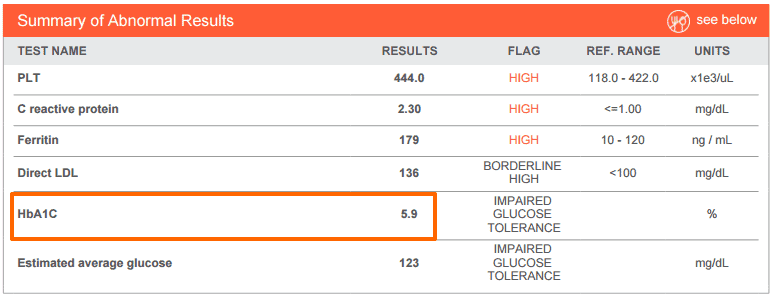


You can see from the summary of abnormal results she is dealing with multiple issues…
- High levels of inflammation as evidenced by the elevated platelet count, CRP, and high ferritin
- Insulin resistance as evidenced by the Hgb A1c at 5.9 (pre-diabetic range)
- High fasting insulin resistance and thyroid resistance
- Thyroid resistance as evidenced by the high reverse T3
So let’s put this story together:
She has high levels of inflammation with a CRP of 2.3, a platelet count of 444, and a ferritin level of 179 (yes ferritin is also an acute phase reactant and can be used as a marker of inflammation).
You might recall that inflammation reduces T4 to T3 conversion (3) which causes high levels of reverse T3.
You can see that her reverse T3 is 16.7 which is higher than the “optimal range” of < 15 that we are looking for.
So you can see right away that inflammation is obviously making her thyroid function worse, but there’s more.

She is also dealing with insulin resistance (based on her high fasting insulin level of 9.5 and her Hgb A1c of 5.9 which puts her in the pre-diabetic range).
Insulin resistance is yet another factor that can contribute to high levels of reverse T3 and make thyroid function worse.
In addition, insulin resistance makes weight loss very difficult by taking energy from the blood and placing it in fat cells.
In this case, the combination of both thyroid resistance and insulin resistance are causing her weight loss resistance.
The next question is, what do we do about it?
How to Put it All Together – From Diagnosis to Treatment
This is the important part:
Diagnosis is really just the beginning, what matters is how you approach treatment.
You can ask for all the tests you need to help find the root cause of your problem, but just knowing does nothing for you.
In order to get results, you need to properly TREAT the problem.
As I mentioned above we know that we are dealing with both insulin resistance and thyroid resistance.
So how did we take her from a fasting insulin of 9 to a fasting insulin of 4.2 and around 50 pounds of weight loss along the way?

Complete treatment plan including WP Thyroid:
- Hormones: Hydrocortisone (5mg) + WP Thyroid titration up to 1.5 grains (previously on Armour thyroid 1.5 grains)
- Supplements: Alpha lipoic acid, fish oil, zinc, vitamin B12, selenium, milk thistle
- Exercise: Low-intensity exercise daily
- Diet: Whole food diet + Intermittent Fasting
- Stress: Mindfulness and meditation
In this case, the biggest barrier to weight loss and feeling better was the insulin resistance and thyroid resistance that she was facing.
The thyroid resistance was treated with Armour thyroid initially and then transitioned to WP Thyroid due to absorption issues.
Remember that thyroid hormone should always be titrated based on a combination of lab results, symptoms, and body temp/resting heart rate.
In this case, the majority of the effort was focused on treating and balancing insulin levels.
Most people think that treating insulin resistance is as easy as just cutting out carbs.
This approach generally isn’t sufficient for the majority of patients:
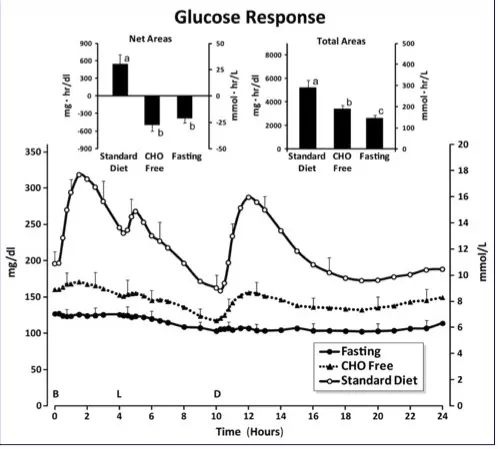
You can see from the image above that just cutting out carbs isn’t enough to lower the blood glucose enough to sensitize the cells to insulin.
It really requires the combination of intermittent fasting in addition to cutting out carbohydrates.
The therapies, in combination with T3 from the WP Thyroid, really help to reverse those levels and lead to lasting weight loss.
Your Next Steps…
So what do you do if you are on T4 medication and unable to lose weight or feel better?
The first thing you need to do is find a provider or physician to help guide you along the way (you can use this resource to help).
I don’t recommend taking this information to your current Doctor and trying to get them to treat you in this way.
First of all your case is unique to you, and you may need a different combination of dosing/medication/hormones/diet, etc.
But also you really need that help to guide you through the ups and downs of treatment.
It just isn’t as simple as starting hormones or medications and watching the weight shed off.
It takes a combination of trial and error to get to the root cause of the problem.
So remember:
Thyroid medication, including WP Thyroid, can certainly help you lose weight and feel better but it isn’t the primary solution to your problem.
Instead of focusing on diet and thyroid medication, I want you to look at other hormone imbalances in your body and address those.
Final Thoughts
Are you currently on Nature-throid or Armour thyroid and still feeling poorly?
Have you been able to lose weight while switching medication and balancing your hormones?
If so it may be the result of reacting poorly to your current class of thyroid medication.
WP thyroid is an NDT formulation that may be purer and, therefore, better absorbed when compared to other brands of NDT.
If this scenario exists within your body then switching to WP thyroid may actually result in weight loss where other medications have failed.
This may also be relevant if you are taking T4-only medications such as Synthroid or Levothyroxine.
Now I want to hear from you:
Have you tried taking WP Thyroid before?
If so, what has been your experience?
Are you currently taking Nature Throid or Armour Thyroid? Are they working for you?
Leave your comments below!
Scientific References
#1. https://www.ncbi.nlm.nih.gov/pubmed/28138133
#2. https://www.ncbi.nlm.nih.gov/pubmed/7608283
#3. https://www.ncbi.nlm.nih.gov/pubmed/27051079
#4. https://www.ncbi.nlm.nih.gov/pubmed/19942153
#5. https://www.ncbi.nlm.nih.gov/pmc/articles/PMC4699302/
#6. https://www.ncbi.nlm.nih.gov/pubmed/17017910
#7. https://www.ncbi.nlm.nih.gov/pmc/articles/PMC6068267/
#8. https://www.ncbi.nlm.nih.gov/pmc/articles/PMC6098896/
